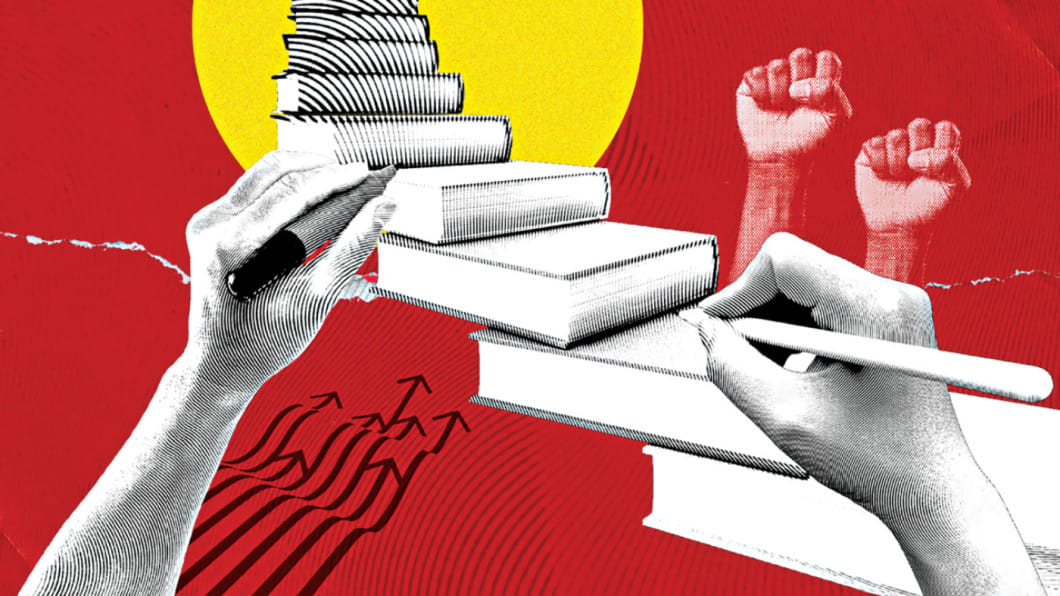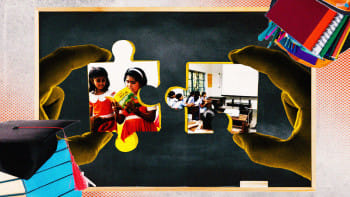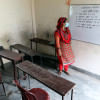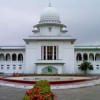The true purpose of education

"Are you an education major?" someone asked me, a hint of admiration in her voice. It had been a hot humid afternoon in July; we were sitting on the field under the bot gachh at our bot-tola school, gathered for our regular classes with the homeless street children on the Dhaka University campus. She was a foreigner visiting from a social work NGO, and seeing my engagement with the children, she assumed I had specialised in the field of education.
At the time, I was a second-year student in economics, and I began to wonder: can an economist focus their skills and knowledge on matters of education? I Googled "economics and education" and found my answer. I finished my economics degrees and journeyed to the University of Cambridge, where I found a group of economists who had set up their platform working on education issues.
The dream to someday work on reforms in Bangladesh's education system became my inspiration. I day-dreamed about working on education for underprivileged children, and I set out to learn all that I could so that I could do something to make a difference when I returned to Bangladesh. The more I learnt, the harder it seemed. I decided that the first step would be to begin raising questions.
Today, it all rounds up with one last question: what is the purpose of education? The answer will ascertain that we're not like a train with competence that runs on time, but like one that doesn't know where it's going or why it's going there.
Philosopher and mathematician Bertrand Russell once cautioned that different stakeholders of education would naturally have different ideas on education's purpose, because they'd have different interests to serve. The powerful are more likely to have a different agenda altogether—they don't want education to create a workforce that can think for themselves. If we are an "educated" workforce and if we want the best collective interests of the majority to be reflected in educational policy-making, we must think, ask questions, and demand answers.
Importantly, our answers should be research-driven. We need to invest in conducting our own research and make the system of grants and funding efficient, not connection-driven. We need to fix our education system so that it mitigates socioeconomic differences, rather than reproducing it. We need to do better for the children coming from lower-income families to balance out inequities at home. We need to de-politicise education.
The truth remains that nothing is above politics. During a visit to Cambridge while I was a student there, the then Indian education minister said, "One thing I believe is behind the change in the education system is the political will behind it." With so much political difference persisting historically in our country, we need to unite and rise above politics for the sake of the state of our education. Like separation of church and state, we need separation of education and party politics. We need to ask: who sets our education policies? Who gets a seat at the table?
We need to institutionalise this process so that qualified people, not just famous people, comprise a team and so that quality work continues regardless of a change in political regime. Rabindranath Tagore, as much an education enthusiast as a writer, wrote, "What we understand by school is just a factory for providing education… There are rules in the factory, but no soul. Teachers are working, students are working, but neither knows what this working is for." You see, we've been yearning for a change for a long time, and this need surpasses who is in government.
If we are to revolutionise our education system, we have countless examples from around the world to draw inspiration from, many quite close to home. The likes of the Himalayan Institute of Alternatives Ladakh, combining the best of the East and the West, where students don't pay for education but work for it, where education is contextual and experiential and values the culture that has developed over a thousand years as part of it. The likes of the "Happiness Curriculum" launched in Delhi, where students learn to develop critical thinking and inquiry while also learning to express themselves independently and creatively. The likes of education reformists such as Sonam Wangchuk, the real life Phunsukh Wangdu, and Gitanjali J Angmo, whose lecture on reimagining the philosophy of education shook me to the core.
We need to do our own re-imagining and remember that the true goal of education is "intelligence plus character," as Dr Martin Luther King, Jr said. Those of us who have seats at the table, who are policymakers and politicians, we need to care more—even if our own children are safely abroad studying in other education systems. As novelist and poet Thomas Hardy said, "All the little ones of our time are collectively the children of us adults of the time and entitled to our general care." I end this series here in the hope that, if anything, my writings have sparked, in my soul and yours, a stronger yearning for change—for a society that lets us learn because we love to learn.
Dr Rubaiya Murshed is an education economist and assistant professor in the Department of Economics at the University of Dhaka.
Views expressed in this article are the author's own.
Follow The Daily Star Opinion on Facebook for the latest opinions, commentaries, and analyses by experts and professionals. To contribute your article or letter to The Daily Star Opinion, see our guidelines for submission.

 For all latest news, follow The Daily Star's Google News channel.
For all latest news, follow The Daily Star's Google News channel. 










Comments